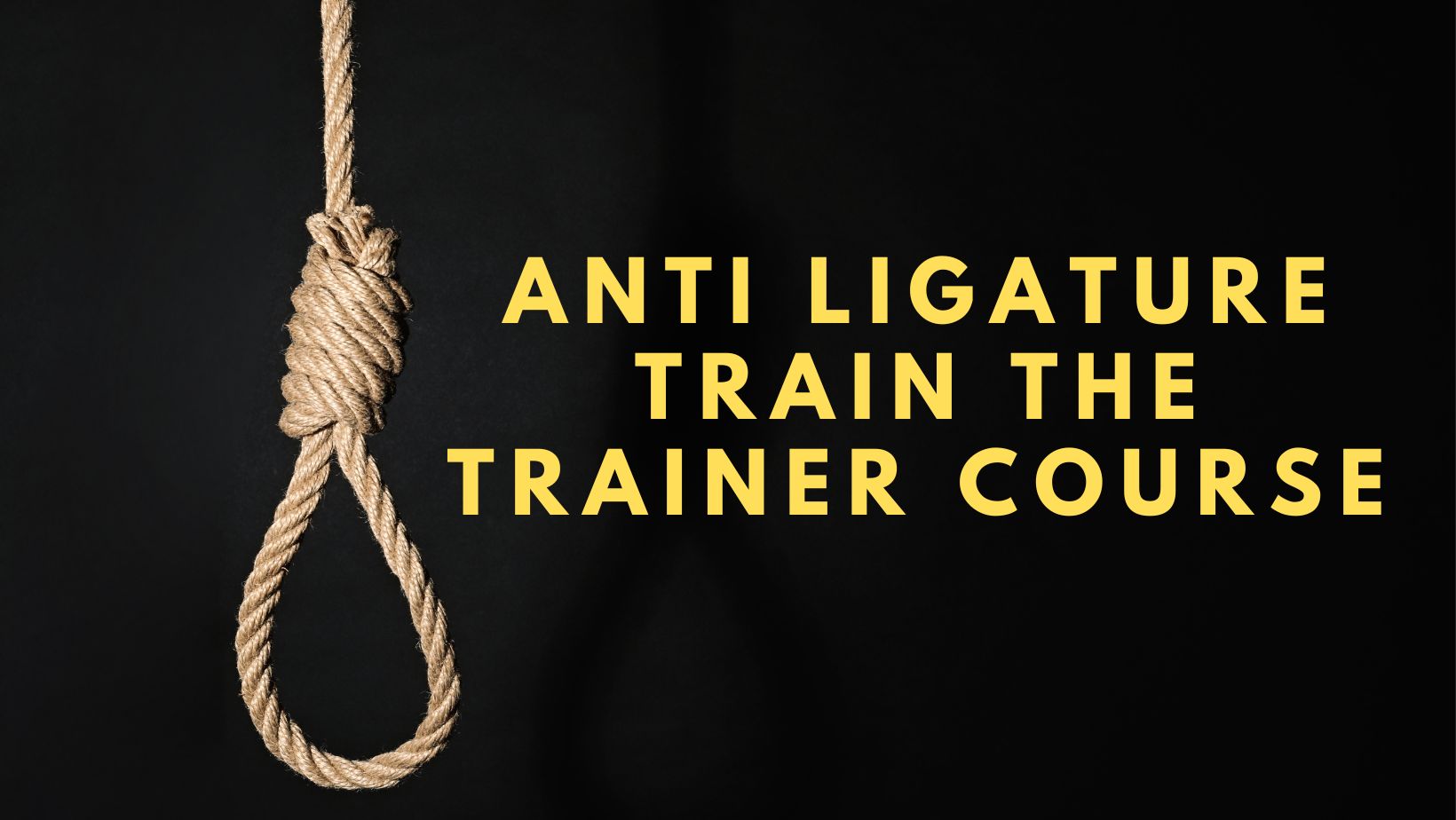1 x Payment of £599 + Vat
3 x Payments of £200 + Vat
Welcome to our anti ligature training page, where we provide comprehensive training to healthcare professionals, security operators, teachers, social workers, parents, architects, and contractors (to name a few) on the dangers of ligature points and how to prevent them.
What is Anti Ligature Training?
Anti ligature training educates staff on how to identify and eliminate ligature points, which are potential suicide hazards, in mental health units, hospitals, and other healthcare environments.
The training covers everything from identifying ligature points and implementing strategies to reducing the risk of self-harm to understanding the importance of proper documentation.
Why is Anti Ligature Training Important?
You may have seen the Channel 4 Dispatches programme ‘Hospital Undercover: Are Our Wards Safe?‘ where a Dispatches reporter went undercover in Essex Partnership University Trust, you would have seen the numerous attempts at patients trying to kill themselves using ligatures.
But it’s far more common than that.
A mental health trust was fined £1.5m for safety failings over the deaths of 11 patients
The Health and Safety Executive (HSE) took action against the NHS North Essex Partnership Trust (which merged with South Essex Partnership Trust in 2017 to form the Essex Partnership University NHS Foundation Trust) after the deaths by suicide between 2004 and 2015.
The prosecution said the existence of “fixed potential ligature points” amounted to breaches of safety laws.
The judge in the case stated: “There’s no doubt the failures to remove ligature points were a significant cause in the deaths of 11 people who died during the relevant time period, and of a 12th person who died just after, and a number of near misses.
HSE Enforcement Notice against NHS Orkney
The Growing Concern
Suicide by hanging is one of the most commonly used suicide methods with a high mortality rate, with one research study suggesting at least a 70 percent success rate for death.
In England, there are around 2000 hanging suicides per year and it is the most commonly used suicide method.
Many of these attempts leave the victim with life changing disabilities.
This is why this course is so important.
This is why NFPS Ltd has endorsed this Anti Ligature Train The Trainer Course.
NFPS Endorsed Anti Ligature Train The Trainer Training
This is why NFPS Ltd has endorsed this Anti Ligature Train The Trainer Course at Lilleshall National Sports Centre, in Ford Hall.
Gary, course trainer, has had to deal with young people who have tried to take their own lives this way.
Rab, between the ages 4 to 19, grew up with many foster brothers and sisters and has also witnessed several attempts at suicide using ligatures.
Trevel, within his own policing background, is sadly no stranger to this also.
The Benefits of Anti Ligature Training
By eliminating ligature points, healthcare, care and custodial professionals can focus on providing care to those who need it, without the fear of harm or injury.
Additionally, the training ensures that staff are prepared to deal with any potential incidents that may arise.
Is Anti Ligature Training A Legal Requirement?
In the UK, it is a requirement for all organisations to ensure the health, safety and welfare of everyone in the workplace.
The Health and Safety Executive (HSE) has identified the risk of suicide in the workplace as a priority area, and therefore it is essential that staff are adequately trained to prevent these incidents from occurring (as you can see from the Health and Safety Executives (HSE) prosecution and cases mentioned above).
Anti Ligature Training Is An Ofsted and CQC Requirement
And this is also why Ofsted and CQC inspectors are continually requesting providers to evidence that staff are receiving ligature training to ensure that staff are equipped with the necessary skills and training to enable them to manage self-harm/ligature incidents and save lives.
This training programme is designed to meet the legal requirements set out by the HSE and the evidence required by Ofsted and CQC which you will need when they inspect you.
What Does The Anti Ligature Train The Trainer Course Cover?
The course covers:
1): Responsibilities of the first responder
2): How to complete the Primary Survey
3): Different types of ligature cutters
4): How to use ligature cutters
5): Basic life support (first aid)
6): Physical & behavioural signs of ligature use
7): How to preserve a scene and the importance of it
8): How to report an incident and the information to record
9): An overview of what policies, procedures and best practice should be in place
10): Understanding the choking game is and why people do it, including the medical risks & implications and the associated signs
Plus loads more …….
What Do I Get Once Trained As a Anti Ligature Trainer?
On completion of the course you will receive:
1) Certificate of completion, valid for 12 months;
2) All training PowerPoint presentations;
3) All Course Plans;
4) All trainer notes;
5) Delegate workbook;
6) Delegate assessment criteria and trainer answer sheet;
7) Two sets of ligature cutters, one set of kevlar gloves.
What Do I Do Next?
To book your place on the next course choose your payment option below and then simply click the ‘Book now‘ button to secure your place.


